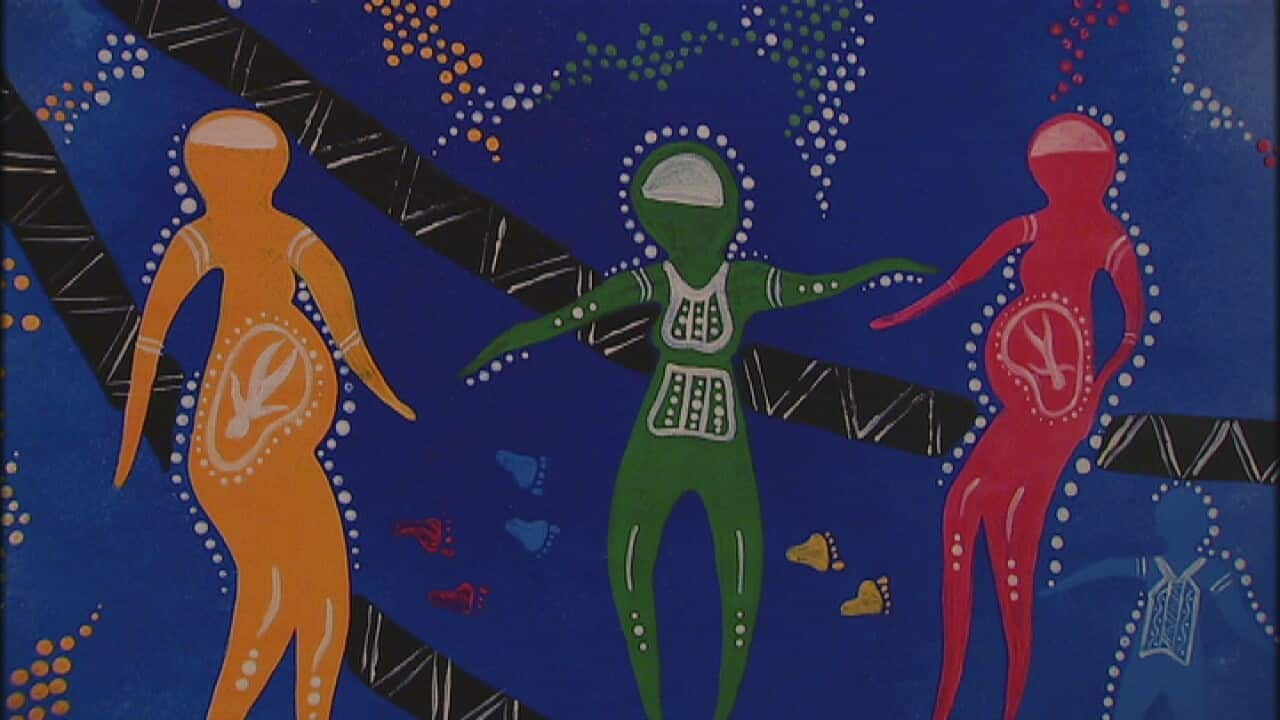Tarnee woman Lisa Cochran is a busy mother of three. Her eldest daughter, now 11, was born through the mainstream hospital system.
"In mainstream you can't really ring anyone and just say, 'I feel like something's wrong'," Lisa says.
"You're never stuck with the one person. You always chop and change." A lack of cultural understanding within the health system is an experience shared by many Indigenous women.
A lack of cultural understanding within the health system is an experience shared by many Indigenous women.

Lisa Cochran and her three week old son.
This disconnect can have major consequences.
Aboriginal and Torres Strait Islanders have three times the maternal death rate compared to other Australians.
They also experience double the number of infant deaths during childbirth.
University of Queensland Professor of Midwifery Sue Kildea says Indigenous women may be reluctant to seek out conventional maternity care.
"We've got services that don't necessarily meet the needs of women, so women are not feeling safe and comfortable with our services when they come, so they may not come as often as they should, or as early as they should, " Professor Kildea says.
Malabar Midwives
Lisa changed to Malabar Midwives at the Royal Hospital for Woman for her second pregnancy two years ago.
provides care specifically for Aboriginal and Torres Strait Islander women throughout the antenatal period, labour, birth and postnatal period.
The same midwives assist the mothers through the entire experience, providing 24 hour on-call service.
Malabar Midwives Clinical Midwifery Consultant Shea Caplice says the service employs Indigenous midwives and healthworkers to ensure mothers receive culturally appropriate care.
"An Indigenous healthworker works with us very closely and she keeps it culturally appropriate and she's like our bridge to the community," she says.
Ms Caplice has witnessed the service grow over the last decade.
"We now have triple the women that were seeing us ten years ago, so that's a plus."
"It's the accessing healthcare that has been the first barrier," Ms Caplice says.
Lisa says she the culturally sensitive care she received during her second pregnancy made all the difference.
"They actually understand our culture and our ways and make you feel really good." There's no doubt providing culturally sensitive care for Indigenous women can have a major impact.
There's no doubt providing culturally sensitive care for Indigenous women can have a major impact.

Malabar Midwifery Link Service headquarters.
Recent figures show, in at least one area of infant mortality, targeted programs are working.
A new by the Australian Institute of Health and Welfare found the rate of stillbirths in Australia, for all women, has increased by thirteen percent in the past two decades.
However - despite this overall rise - the rate of stillbirths among Indigenous mothers has actually dropped by 16 percent.
Ms Caplice believes increased access to appropriate healthcare is creating better outcomes for Indigenous mothers.
"We have certainly noticed, in women accessing healthcare early during the pregnancy, the outcomes are much better," she says.
Senior Advisor for the NSW Aboriginal Nursing and Midwifery Strategy Leona McGrath is working to ensure Indigenous women continue to access prenatal care.
Leona is one of only 230 Aboriginal and Torres Strait Islander midwives in Australia.
As a mother, Ms McGrath can see the benefit of culturally sensitive maternity care.
"From my own personal experience of having my baby, there were no Aboriginal or black health workers, and I think my own birthing experiences would have made a world of difference if I had another black face in the room," she says.
Through the , Ms McGrath provides opportunities for aspiring Indigenous midwives.
Lisa Cochran says she's been inspired to become a midwife herself.
"I'm actually considering midwifery myself, just so Indigenous people, and women, can be more comfortable," Lisa says.
"I think they relate better having their own with them through their pregnancy and labour."
Lisa believes services like Malabar Midwives could be key to reducing Indigenous childbirth mortality rates.
"It's good for Indigenous women to have a support system like that and I think it should be Australia-wide. I really do."




